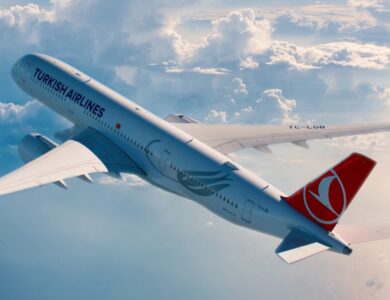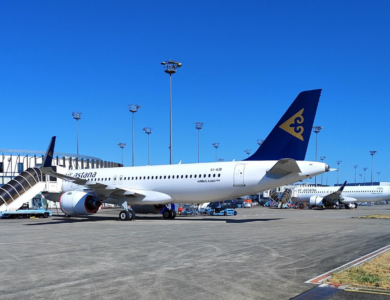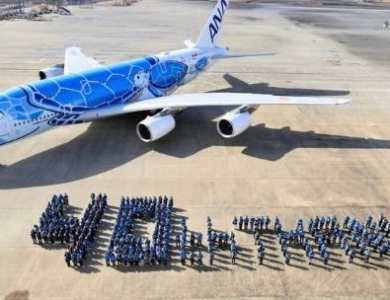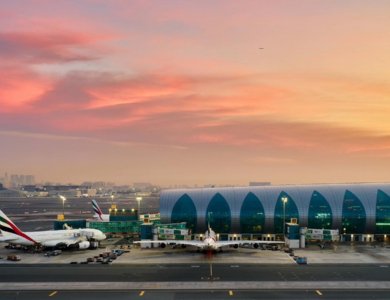At IATA 2025 General Meeting, “The Big Picture” Panel Charts the Economic and Geopolitical Pulse of Global Aviation
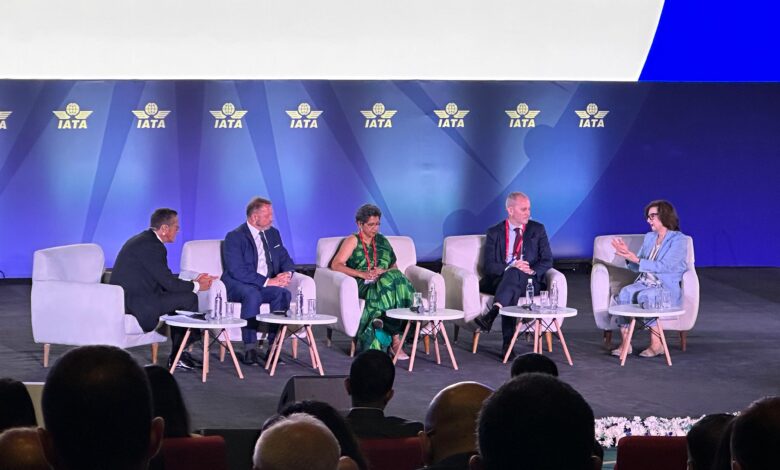
One of the most striking sessions of the 81st Annual General Meeting of the International Air Transport Association (IATA), held in Delhi, was “The Big Picture” panel, which tackled the complex economic and geopolitical landscape facing global aviation. The session opened with an in-depth presentation by Marie Owens Thomsen, IATA’s SVP Sustainability and Chief Economist. This was followed by a moderated discussion led by CNN’s Richard Quest and featured expert panelists Henry Wilkinson (Dragonfly), Indrani Bagchi (Ananta Centre), and Andrew Staples (GeoPol Asia).
🌍 Marie Owens Thomsen: “The arteries of the global economy are clogging”
Marie Owens Thomsen began by describing aviation as a vital circulatory system for the global economy:
“Aviation transports 5 billion passenger segments and 69 million tons of cargo annually. It is the lifeblood of global trade.”
However, she warned that this system is under threat from multiple directions. Rising tariffs, conflicting carbon regulation schemes (such as the clash between CORSIA and the EU ETS), and opaque SAF (sustainable aviation fuel) pricing policies in Europe are all adding pressure to the industry.
Global growth forecasts have also been downgraded. Marie noted that global GDP is expected to grow by 2.5% in 2025, down from earlier projections, and that the US will likely see only 1.5% growth. She highlighted that low oil prices have somewhat softened the blow:
“Low oil prices are helping keep global growth afloat. But for European airlines, things are tougher as fuel suppliers impose extra charges linked to SAF compliance risks.”
Key sector financial forecasts she presented include:
- Total airline revenue forecast for 2025: $979 billion
- Operating profit: $66 billion
- Net profit: $36 billion (equivalent to $7.2 per passenger)
- Highest profit-generating region: North America ($12.7 billion)
- Lowest profitability: Africa (only $1 per passenger)
She concluded by pointing out the structural imbalance in the aviation value chain:
“Airlines are squeezed between suppliers with pricing power and hyper-competitive consumer pricing. That’s why our margins stay structurally low.”
🔎 Henry Wilkinson: “Flight paths are getting longer, and risks are growing”
Henry Wilkinson, Chief Intelligence Officer at Dragonfly, focused on how geopolitical conflict impacts air travel. He emphasized that the war in Ukraine, tensions in the Middle East, and India–Pakistan hostilities are forcing airlines to make costly detours.
“Conflict zones don’t just pose immediate risk — GPS spoofing and cyber threats are also complicating route navigation, especially in areas like the Eastern Mediterranean and the Black Sea.”
He also underscored the rising threat of drones in modern warfare, including implications for civil aviation:
“Drones are now in the hands of both states and non-state actors. The threat is no longer just on the battlefield — it’s now at the airport.”
📉 Andrew Staples: “Protectionism is back — uncertainty deepens”
Andrew Staples of GeoPol Asia emphasized the disruptive impact of U.S. trade policy, particularly on Asian economies. He pointed out that the protectionist measures initiated under Trump have largely continued under Biden:
“The weaponization of trade and technology is forcing Asia’s export-driven economies to restructure.”
Staples noted that the unpredictability of tariffs is paralyzing investment decisions:
“Companies don’t know if these tariffs will last six months or six years. That uncertainty is freezing investment.”
He also highlighted how the unraveling of economic interdependence between countries could have severe long-term consequences for peace and diplomacy.
🧭 Indrani Bagchi: “Geopolitical clarity is gone — uncertainty is here to stay”
Indrani Bagchi, CEO of Ananta Centre, pointed out that the global geopolitical landscape is fragmenting. She observed that while China is forming new alliances (with Russia, Iran, Turkey, etc.), the U.S. has strained its relationships with traditional allies:
“Today, countries are no longer asking ‘Are you economically aligned with me?’ but rather ‘Are you geopolitically on my side?’”
She added that India has learned valuable lessons from the Russia–Ukraine war, leading to significant adjustments in its defense posture:
“Modern warfare is defined by multi-layered air defense, signal jamming, and counter-drone tactics — and India has adapted rapidly.”
🛫 End of the Panel: “Planes will still fly”
As the session wrapped up, moderator Richard Quest asked each speaker what challenge might disappear from the table next year. Most answers were cautious, but Marie Owens Thomsen closed with a hopeful message:
“Everyone wants to fly. Flights will continue — perhaps longer, maybe costlier, but they will take off.”
This session not only examined the future of aviation but also painted a broader picture of the global economic and political transformation underway. The industry’s challenges go far beyond operations — they reflect deeper systemic changes shaping the 21st-century world order.
